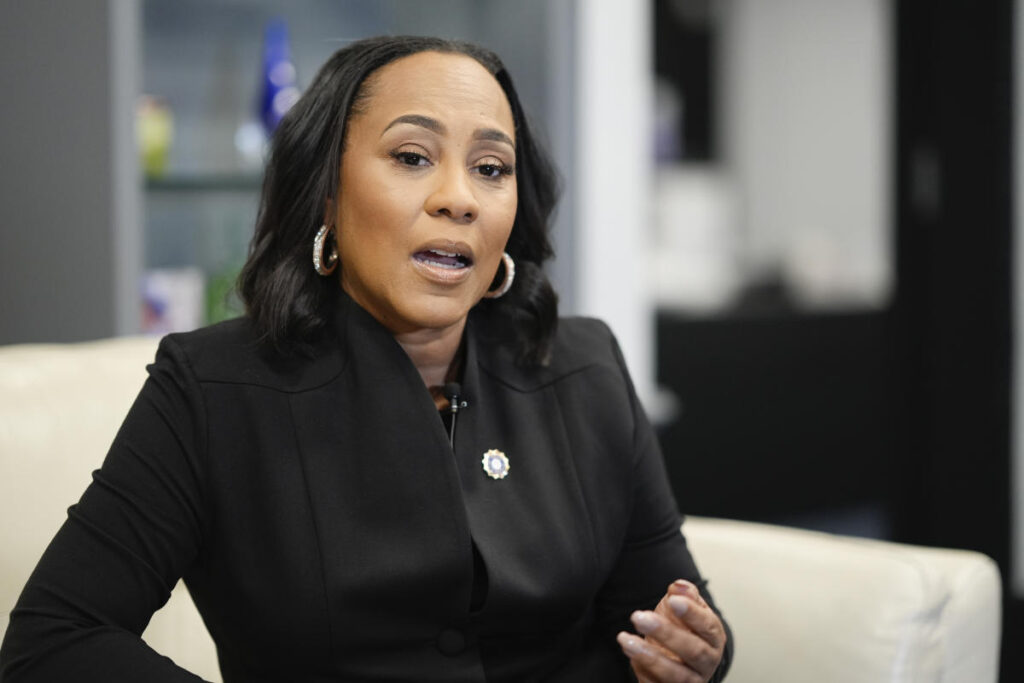Fulton County District Attorney Fani Willis, a prominent figure for her charging of former President Donald Trump in connection with the 2020 election interference, is running for reelection in a political climate that includes a challenge from a Republican opponent, Courtney Kramer. Kramer, a young attorney with ties to Trump’s White House, is seeking to introduce transparency and accountability in the district attorney’s office. Despite Kramer’s efforts, Willis is confident in her ability to retain her position. Willis highlighted her accomplishments, including a pre-indictment diversion program and initiatives aimed at reducing gang involvement among youth in schools. Given Fulton County’s Democratic dominance, where no Republican has contested the district attorney’s role since 2000, and her substantial fundraising advantages—$2.1 million to Kramer’s $278,000—Willis is seen as the frontrunner.
Kramer’s campaign reflects her deep-rooted ties within Georgia’s Republican circles, and her assertion that political affiliation should not deter potential voters underscores her desire to appeal to a broader base. Still, Willis remains unfazed, suggesting that Kramer’s inexperience in prosecution and criminal law will impede her campaign. Kramer, who champions the narrative of “right versus wrong,” finds herself inimical to Willis’s clear track record and defining moments, such as investigating Trump’s alleged crimes regarding the election, which has elevated her prominence in Democratic and progressive circles nationally.
Willis’s rise to the position of district attorney, having previously worked in the office for 17 years, has equipped her with significant experience, fortifying her assertion that she deserves another term. Part of her platform focuses on aiding victims of domestic violence and enhancing county resources in that area. Meanwhile, the ongoing Trump case has made her a target on both sides of the political spectrum, having received criticism over a romantic relationship with the special prosecutor on that case, which has ignited concerns over her judgment from judges and legal professionals alike.
Kramer’s motive for entering the race was largely tied to Willis’s handling of the Trump indictment, accusing her of exploiting the case for political gain. While there’s speculation about Kramer’s intentions toward the Trump case if elected, she has promised to recuse herself to uphold ethical standards. This premise has also led to discussions about the effectiveness of Willis’s prosecutions and tactics, with some progressives criticizing her methods as excessively punitive, claiming that she complicates cases unnecessarily.
Willis has vigorously defended her approach to crime, dismissing Kramer’s criticisms as uninformed and claiming that Kramer lacks essential legal experience. While violations of criminal law are often contentious, data show that violent crime rates in Atlanta have generally decreased during Willis’s administration. Statistics reveal a sharp decline in homicides and other violent offenses, countering Kramer’s claims that crime has worsened under current leadership. However, the Fulton County jail remains a hotbed for issues, though improvements have been noted in reducing overcrowding since Willis assumed office.
Ultimately, the race highlights contrasting political ideologies and futures for Fulton County’s criminal justice system. With Willis aiming for a second term and envisioning a future in academia after her political tenure, her confidently led office faces scrutiny from a Republican contender who seeks to detract from her record. The dynamics of this race encapsulate critical themes in today’s political climate, especially regarding law enforcement, accountability, and the intersection of politics and the justice system—elements that define the stakes for voters in the upcoming election.

